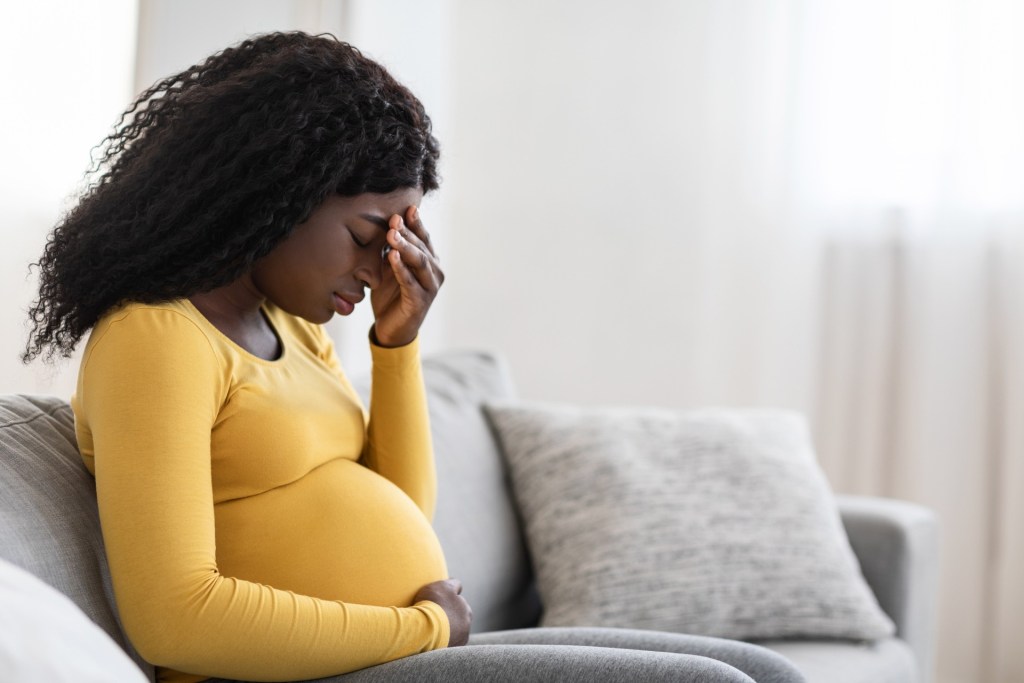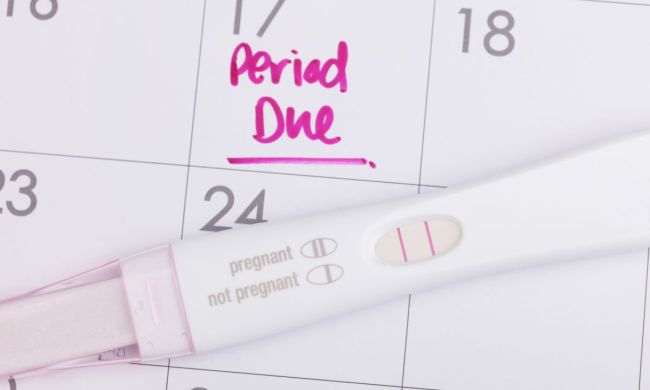
Pregnancy can be amazing and frustrating. It’s the critical time that mom forms the bond between herself and her baby. However, symptoms and side effects of growing a human being can cause a fair amount of discomfort. Whether the cause is stress, injury, surging hormones, or slight dehydration, expecting moms are bound to experience at least one or two headaches throughout their pregnancy, leaving many to wonder if it’s common to have pregnancy second-trimester headaches.
Triggered headaches are common in pregnancy, especially during the first trimester when pregnancy hormones double and triple. But what about later-trimester headaches? Could they just be a passing issue due to stress or hormone imbalance? Or could they be a sign of something more serious? Let’s look at what the experts say to ease the minds of troubled moms looking for aid.
What is a headache, anyway?

It’s not always the easiest thing to do, self-diagnosing a headache you’re currently experiencing while in your second trimester of pregnancy. This is especially true for first-time moms-to-be. While headaches can occur at any time and the person need not be pregnant, experiencing a painful and pounding headache later in the pregnancy game can be a bit alarming. First things first, however, expecting moms should try to figure out which type of headache they are battling, then decide the best course of action. This can, and often should, include a phone call to the OBGYN’s office.
According to Banner Health medical experts — a multi-state, West/Southwestern healthcare system – there are three types of headaches:
- Tension types: These are your regular, run-of-the-mill kind of headaches. They are often described as “head squeezing”, stress-related headaches. They are carried by stress in the shoulders, neck, and lower head and can reach up into the middle of the head as well.
- Migraines: These types of headaches are often life-impacting. Migraines affect different women in diverse ways, however, migraines are carried on one side of the head or the other and can interfere with sensitivity to light, sound, and smell. Pregnant patients report a mixed bag of migraine symptoms, some experiencing worsening headaches in the first trimester with relief later, while others report zero change or no migraine days at all while pregnant.
- Cluster type: These types of headaches affect clusters of nerves within the brain, and often cause severe pain around the temples and eyes of the sufferer. These types of headaches are less common in pregnant women, but they can still occur at times.
Is there cause for concern?

If you’re currently experiencing a painful headache and happen to be into your second — or even third — trimester, you could likely be feeling concerned or anxious about the pain and what it could mean. The important thing to remember is to stay calm and relaxed. One or two isolated headaches are often not enough to cause great concern. However, should they continue or intensify, pregnant women must reach out to their doctors as soon as possible.
Preeclampsia is a risk for moms at any stage of pregnancy and is a high concern for OBGYNs when a mom-to-be experiences the symptoms of high blood pressure. One of the first signs of preeclampsia can be a headache, though this disorder does not affect every pregnant woman. Keeping a journal of pregnancy symptoms can help you take charge of any issues you may have and give your doctors a clear picture of your overall health throughout your day-to-day life.
When to call your doctor

Although the odd headache during pregnancy is nothing to typically worry about, if you do find yourself experiencing severe headaches during later trimesters, you should contact your doctor. In addition to a headache that just won’t go away, the American College of Obstetricians and Gynecologists warns that shortness of breath, vision changes, swelling of the face, and pain in the upper shoulder or abdomen are all potential signs of preeclampsia.
If you’ve tried to alleviate your headache symptoms and nothing seems to be working, it may be time to call your doctor, OBGYN Dr. Kelley Saunders explained to Banner Health. “This includes new headaches that present after 20 weeks, a sudden onset of severe headaches, headaches accompanied by nausea, vomiting or fever, mental health change, elevated blood pressure, and vision changes,” Dr. Saunders said. “It’s important to keep an open line of communication with your physician and let them know about any changes in your health so they can rule out anything serious.”
What can be done to treat second-trimester headaches?

For expecting headache sufferers, there are a few tips, tricks, and treatments that they can use to combat the pressure and pains of headaches during pregnancy.
Get enough rest
This may sound redundant and even a bit ridiculous, but moms need to rest as much as possible during all trimesters. This not only allows your body to develop your unborn child but also gives it a chance to recoup and rejuvenate. Tired moms are susceptible to headaches more so than rested ones.
Drink plenty of fluids
Dehydration is another factor when it comes to headaches in pregnant moms. Hydrated veins work more efficiently at keeping the red blood cells flowing. Dehydrated ones shrink, causing the veins to pump more blood and can intensify the pounding pressure in a headache sufferer’s head.
A few other tips include
- Cold/warm compresses for the head
- Pregnancy-friendly yoga stretches to reduce headaches
- Balanced and nutritious diet choice
- Cutting out all caffeine
- Tylenol with a doctor’s direction
Headaches during any trimester can seem alarming to newly expecting moms. With all the changes that surround the body and the womb, a few aches and pains will come into play at some point, without a doubt. However, it’s important to note that should these headaches continue or intensify, moms should be reaching out to their OBGYNs quickly to find a carefully curated course of treatment. By increasing the amount of rest and fluids, you can take preventive measures to ensure unwanted headaches don’t continue to bother you throughout the rest of your pregnancy.



